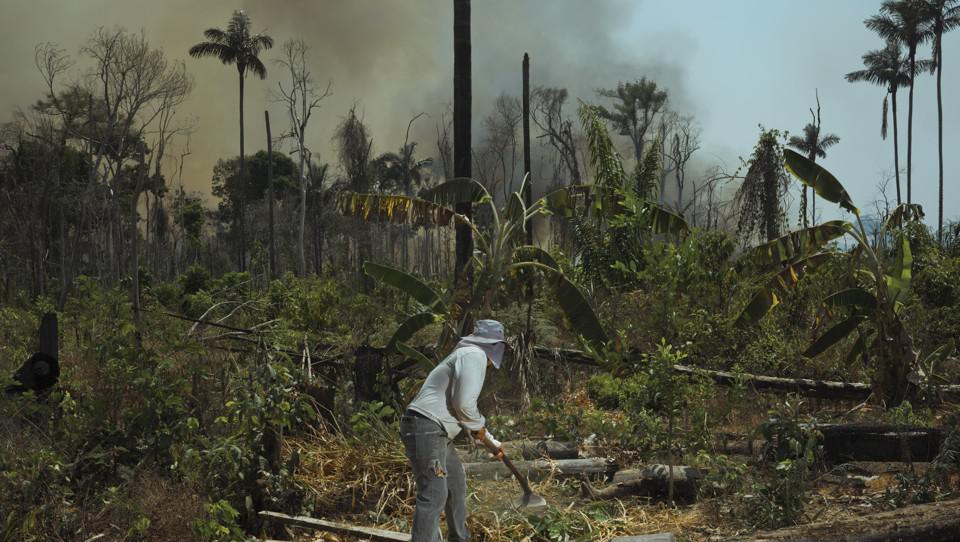China Wants Food. Brazil Pays the Price.

This article is a collaboration between The Atlantic and the Pulitzer Center.
The Amazon tends to evoke an Edenic vision—of a mysterious and impenetrable land, pregnant with beasts from jaguars to anacondas, rich with undiscovered flora. But parts of it are incongruous with this reputation, where big rig trucks rumble past dilapidated, grime-covered gas stations, and where land once thick with brambly trees and the promise of jungle adventure has become cattle pasture or soy field.
We are traveling on a road unimaginatively named BR-163. Pull up Google Maps and zoom in to the state of Mato Grosso, and find the thin strand of highway wending up across the state. Branching out are perpendicular brown lines, all of them unmistakably cleared land, cutting into and contrasting with the dark green forest. This highway is where agriculture and the Amazon jungle meet.
The rain forest here in Brazil has progressively fallen victim to global demand for soy and beef. And the country’s biggest customer for both is China. The story of the Amazon has become entangled not simply with the story of Brazil’s poor protection of its forest frontier but also with that of the rise of this new superpower and its food-security strategy. Soy is China’s weak link, the main food to feed its pigs, and Chinese state-owned companies also in Brazil’s supply chain so the South American country can increase its own exports. This growing hunger for soy has incentivized Brazilian prospectors to keep pace by razing pristine jungle, thereby accelerating deforestation.
You’re reading a preview, subscribe to read more.
Start your free 30 days





